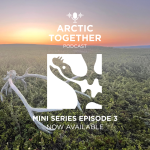
New Episode of Arctic Together Podcast Now Available
The Fostering Indigenous-led Research (FILR) Convergence Working Group (CWG) is one of three Convergence Working Groups that the NNA-CO supported from June 2023 to May 2025. The FILR group focused on what Indigenous-led research is now, what it can look like, and next steps to creating research that is Indigenous-led. One of the final products of the FILR CWG is a podcast mini-series, of which this is the third episode. This episode is hosted by Dr. Margaret Anamaq Rudolf, with guests Stacey Kangipneq Lucason and Warren Miaraq Jones.
Learn More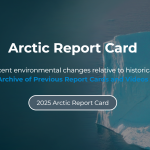
2025 Arctic Report Card
On December 16, 2025, the National Oceanic and Atmospheric Administration released the 2025 Arctic Report Card. Now in its 20th year, the Arctic Report Card (ARC) 2025 provides a clear view of a region warming far faster than the rest of the planet.
Learn More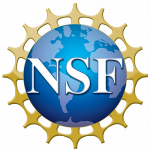
NSF Announces Organizational Realignment
On December 15, 2025, the National Science Foundation (NSF) announced its organizational realignment, with a new organizational chart. Follow the link below to learn more.
Learn More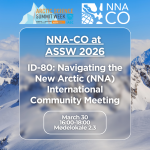
NNA-CO at ASSW 2026
The NNA-CO is excited to announce that we will be hosting an NNA International Side Meeting during ASSW 2026. This meeting will focus on highlighting international research partnerships in the context of mobilising data and knowledge for societal benefit. NNA projects will showcase their work, and discuss how they are approaching international collaboration in the Arctic, working across knowledge systems and disciplines, building partnerships with Indigenous Peoples, and/or advancing ethical and equitable data management practices.
Learn More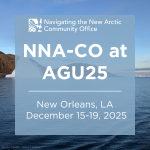
Connect with the NNA-CO at AGU25
Are you attending AGU25 in New Orleans next week? We're excited to share these NNA-CO-led poster presentations and sessions focused on convergence research, Arctic education, and lessons learned from the NNA initiative.
Learn More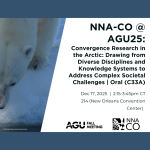
NNA-CO at AGU25: C33A - Convergence Research in the Arctic: Drawing from Diverse Disciplines and Knowledge Systems to Address Complex Societal Challenges
Join us at AGU25 for our session on convergence research in the Arctic. This session takes place on Wednesday, December 17 from 2:15-3:45pm CT in room 214.
Learn More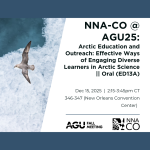
NNA-CO at AGU25: ED13A - Arctic Education and Outreach: Effective Ways of Engaging Diverse Learners in Arctic Science
Join us at AGU25 for our session on effective ways of engaging diverse learners in Arctic science. This session takes place on Monday, December 15 from 2:15-3:45pm CT in room 346-347.
Learn More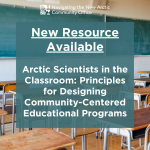
New Resource Available - Arctic Scientists in the Classroom: Principles for Designing Community-Centered Educational Programs
The best practices for science education and outreach in the Arctic has shifted dramatically over the past 30 years as “parachute scientists” presentations in classrooms have gradually been replaced by youth-centered approaches. This mini-course introduces participants to principles of evidence-based, community-centered design of science outreach and education programming in the Arctic.
Learn More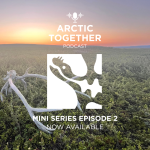
New Episode of Arctic Together Podcast Now Available
The Fostering Indigenous-led Research (FILR) Convergence Working Group (CWG) is one of three Convergence Working Groups that the NNA-CO supported from June 2023 to May 2025. The FILR group focused on what Indigenous-led research is now, what it can look like, and next steps to creating research that is Indigenous-led. One of the final products of the FILR CWG is a podcast mini-series, of which this is the second episode. This episode is hosted by Dr. Stanislav "Saas" Ksenefontov, with guests Dr. Ekaterina Zibrova and Dr. Vera Solovyeva.
Learn More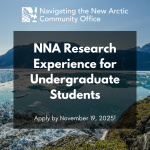
Call for Applications: NNA Research Experience for Undergraduate Students
Do you know an Alaskan undergraduate student who is interested in Arctic research and learning from Indigenous and western knowledge holders? They are invited to apply to the NNA Research Experience for Undergraduate Students, which is a paid research experience focused on exploring Indigenous and western science methods of studying how a changing climate impacts Arctic communities. Applications are due November 19, 2025 at 11:59pm MT.
Learn More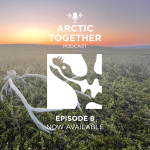
Episode 8 of Arctic Together Podcast Now Available
The Fostering Indigenous-led Research (FILR) Convergence Working Group (CWG) is one of three Convergence Working Groups that the NNA-CO supported from June 2023 to May 2025. The FILR group focused on what Indigenous-led research is now, what it can look like, and next steps to creating research that is Indigenous-led. One of the final products of the FILR CWG is a podcast mini-series, which begins with this new episode, Episode 8. Tune in to this special mini-series that dives into what Indigenous-led Research is and can be.
Learn More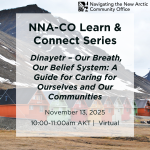
NNA-CO Learn & Connect Series: Dinayetr – Our Breath, Our Belief System: A Guide for Caring for Ourselves and Our Communities
Join us on November 13 for the next installment of our climate mental health Learn & Connect series. Drawing on the knowledge of Elders and ancestral teachings, we will reflect on how stress, trauma, and the pace of modern life affect our ability to learn, connect, and thrive. Together, we’ll discuss strategies to move from reactivity to proactive care, and how organizations and communities can reimagine spaces where people not only survive, but flourish.
Learn More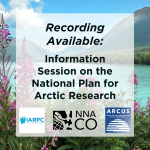
Recording Available: Information Session on the National Plan for Arctic Research
The NNA-CO, together with the IARPC Secretariat and ARCUS, hosted an information session on September 18 about the Arctic Research Plan and how it is being updated for 2027-2031. Attendees heard from several speakers about the process for updating the five-year national Arctic Research plan, how input can be contributed, what kinds of input IARPC is seeking, as well as upcoming opportunities to participate in focused topic discussions.
Learn More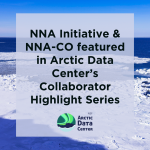
NNA Initiative & NNA-CO featured in ADC collaborator highlight blog
The Arctic Data Center (ADC) recently featured the NNA initiative and the NNA Community Office in their collaborator highlight series. Read the blog post to learn more about our work and that of several NNA projects.
Learn More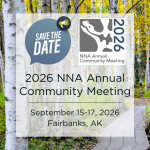
Save the date: 2026 NNA Annual Community Meeting
The NNA-CO is excited to announce that the 2026 NNA Annual Community Meeting will be held in Fairbanks, Alaska during September 15–17, 2026. While we have hosted our meetings in spring for the past two years, we decided to shift to a different timing next year. In addition to this NNA community gathering, we will also be offering a range of both virtual and smaller in-person gatherings during the months ahead.
Learn More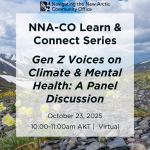
NNA-CO Learn & Connect Series: Gen Z Voices on Climate & Mental Health: A Panel Discussion
Join us for an engaging conversation exploring the intersection of climate change, mental health, and Indigenous perspectives, featuring two members of the Gen Z Climate Mental Health Network. This interactive session will feature a panel discussion and Q&A with youth voices reflecting on their lived experiences, challenges, and hopes for the future.
Learn More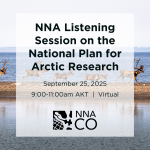
NNA Community Listening Session on the National Plan for Arctic Research
The Navigating the New Arctic Community Office is hosting a virtual listening session on September 25 to gather input directly from the NNA community on the planned update to the U.S. National Plan for Arctic Research. The session will outline the process for providing public input, as well as gather attendee input that will be compiled by the NNA-CO and submitted through the federal register. Please note that this event is specifically for the broader NNA community.
Learn More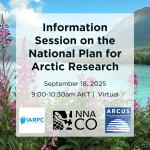
Information Session on the National Plan for Arctic Research
If you are interested in being part of the conversation on Arctic research planning or are curious about what the Arctic Research Plan is and how it is being updated for 2027-2031, please join us for an information session on September 18 from 9am-10:30am AKT / 1pm-2:30pm ET. This is your opportunity to learn how the plan guides Federal Arctic research and how you can contribute your input.
Learn More
Comment period extended: Request for Public Comment on National Plan for Arctic Research
On July 21, 2025, the National Science Foundation (NSF) published in the Federal Register a document entitled “Request for Public Comment: National Plan for Arctic Research.” In response to requests by prospective commenters that they would benefit from additional time to adequately consider and respond to the RFI, NSF has determined that an extension of the comment period until Saturday, November 15, 2025, at 11:59 p.m. (eastern), is appropriate.
Learn More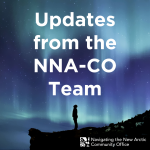
Updates from the NNA-CO Team
During recent weeks, the NNA-CO has seen two of our founding team members take on new exciting roles. James Temte, who has served as the lead of the NNA-CO Community Extension Office at Alaska Pacific University (APU), and Twila Moon, who supported the NNA-CO’s policy-relevant engagement and the Convergence Working Groups, have accepted new positions outside the NNA-CO team. The NNA-CO is extremely grateful for their leadership and for all the heart and passion they have brought into our collective work.
Learn More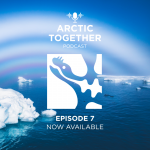
Episode 7 of Arctic Together Podcast Now Available
Episode 7 of the Arctic Together Podcast is now available! You can listen to it on our website or anywhere you download your podcasts. Visit the podcast webpage to read the episode show notes.
Learn More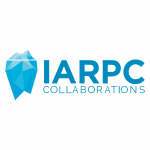
Request for Public Comment: National Plan for Arctic Research
The Interagency Arctic Research Policy Committee (IARPC), chaired by the National Science Foundation, seeks public input from all interested parties on national needs regarding the Arctic and the research necessary to address those needs. The public input provided in response to this RFI will inform the update of the five-year National Arctic Research Plan for 2027-2031. The public comment period closes October 15, 2025.
Learn More
Intro to the NSF Translation to Practice program
To accelerate the movement of research discoveries into practical use, the U.S. National Science Foundation is announcing the new NSF Translation to Practice (NSF TTP) program. This program supports use-inspired research and translational activities that connect foundational science with societal and market needs.
Register for the NSF Translation to Practice webinar
Learn More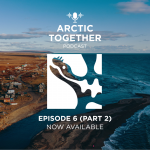
Episode 6, Part 2 of Arctic Together Podcast Now Available
Looking for something to listen to during your upcoming holiday weekend road trip? Episode 6 Part 2 of the Arctic Together Podcast is now available! You can listen to it on our website or anywhere you download your podcasts. Visit the podcast webpage to read the episode show notes.
Learn More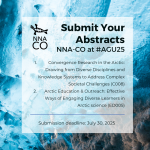

NSF releases updated priorities
On April 18, 2025, the National Science Foundation (NSF) released updated guidance on the priorities of the organization. You can learn more about these updated priorities, review a list of frequently asked questions, or submit your questions on this webpage.
Learn More
Dear Colleague Letter: An Update to the NSF Arctic Observing Network (AON) Program
This letter is to inform the community of an important update to the Arctic Sciences Section's (ARC) Arctic Observing Network (AON) program. Now is an opportune time to conduct a comprehensive assessment of observing and research priorities to help ensure a robust and sustained Arctic Observing Network program at NSF over the coming decade that builds on past strengths.
Learn More

Dear Colleague Letter: Request for Information on the CHIPS and Science Act Section 10343. Research Ethics
The U.S.
Learn More
Dear Colleague Letter: Nordic-U.S. Research Collaboration on Sustainable Development of the Arctic
The U.S. National Science Foundation (NSF) and NordForsk, the science funding body of the Nordic Council of Ministers, have signed a Memorandum of Understanding (MOU) on Research Cooperation. The MOU provides an overarching framework to encourage collaboration among U.S., Nordic, and Canadian research communities and sets out the principles by which jointly supported activities might be developed.
Learn More
FACT SHEET: Biden-Harris Administration Announces New Actions and Historic Progress Supporting Tribal Nations and Native Communities Ahead of Third Annual White House Tribal Nations Summit
This week, President Biden will host the third annual White House Tribal Nations Summit of the Biden-Harris Administration. During the Summit, the Biden-Harris Administration will also release a comprehensive 2023 Progress Report for Tribal Nations, which outlines historic progress the Administration has made over the past year to deliver on the President’s commitment to supporting Indian Country and address the top concerns of Tribal communities...
Learn More
White House Releases Implementation Plan for the United States’ National Strategy for the Arctic Region
The Biden-Harris Administration released the Implementation Plan for the National Strategy for the Arctic Region (NSAR). The NSAR Implementation Plan (NSARIP) serves as a blueprint for an approach to realizing the vision set out in the NSAR and ensures continued collaboration with the wide array of stakeholders with interests in the Arctic.
Learn More
Upcoming Deadlines for Participating in Arctic Science Summit Week (ASSW) 2024
ASSW 2024, which includes the Arctic Observing Summit (AOS), will be hosted in Edinburgh, Scotland during March 21-29, 2024. Proposals for AOS sessions and short statements are due Sep 1, 2023. Proposals for side meetings are due by Sep 30, 2023.
Learn More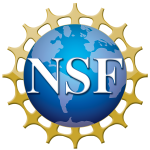
Dear Colleague Letter: Notice of Intent to Compete an Arctic Sciences Community Hub
The U.S. National Science Foundation has released a Dear Colleague Letter (DCL) on their intent to compete an Arctic Sciences Community Hub.
Learn More
NSF Seeking Comments to Proposed Revisions in the PAPPG Related to Tribal Engagement
The National Science Foundation (NSF) recently published proposed draft revisions to their Proposal & Award Policies & Procedures Guide (PAPPG; NSF 24-1) related to how Tribes are to be engaged when research may have an impact on Tribal interests and resources.
Learn More
Dear Colleague Letter: Updates to the Navigating the New Arctic (NNA) Program
Since 2017, the Navigating the New Arctic (NNA) Program--one of NSF’s Ten Big Ideas-- has supported creative new directions for understanding and adapting to a rapidly changing Arctic. Projects funded through the NNA Program have made significant advances in Arctic-related research, education, workforce development, and the leveraging of science, engineering, and technology advances from a wide range of disciplines.
Learn More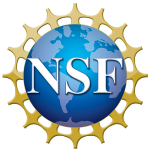
National Science Foundation Funding Opportunity: Arctic Research Opportunities
The National Science Foundation (NSF) invites investigators at U.S. organizations to submit proposals to the Arctic Sciences Section in the Office of Polar Programs (OPP) within the Geosciences Directorate, to conduct research about the Arctic region.
Learn More
Greenland launches first national research strategy
The Government of Greenland has presented its first national research strategy. The document defines how research in Greenland should develop over the next eight years and in which areas investments should be concentrated.
Learn More
Arctic Report Card: Update for 2022
The 2022 Arctic Report Card (ARC2022) provides an updated annual view into the state of the Arctic by checking in on key vital signs—eight defining elements of the Arctic's climate and environmental system. This report also samples critical and emerging topics across the Arctic, bringing into focus diverse collections of observations that help to assess the overall trajectory of Arctic change.
Learn More
White House Releases First-of-a-Kind Indigenous Knowledge Guidance for Federal Agencies
The White House Office of Science and Technology Policy (OSTP) and the White House Council on Environmental Quality (CEQ) jointly released new government-wide guidance and an accompanying implementation memorandum for Federal Agencies on recognizing and including Indigenous Knowledge in Federal research, policy, and decision making.
Learn More
BAMS report: Record-high greenhouse gases, sea levels in 2021
Greenhouse gas concentrations, global sea levels and ocean heat content reached record highs in 2021, according to the 32nd annual State of the Climate report. The international annual review of the world’s climate, led by scientists from NOAA’s National Centers for Environmental Information and published by the Bulletin of the American Meteorological Societyoffsite link (AMS), is based on contributions from more than 530 scientists in over 60 countries.
Learn More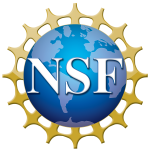
NSF funds new projects to study local and global impacts of a rapidly changing Arctic
The U.S. National Science Foundation has awarded a new round of grants under the Navigating the New Arctic, or NNA, program. The awards support research projects to study the Arctic's changing natural, built and social environments. The work will lead to an improved understanding of the local and global effects of Arctic change, informing U.S. national security and economic development needs.
Learn More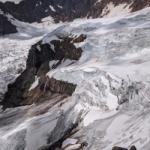
PSECCO Conference Travel Grant Program for polar early career scientists and educators is launched
The Polar Science Early Career Community Office (PSECCO) is opening the PSECCO Conference Travel Grant Program to polar early career scientists and educators who need funding to attend an international or domestic conference at which they intend to present polar science-related content. Travel funding grants aim to support polar early career scientists and educators with demonstrated financial need.
Learn More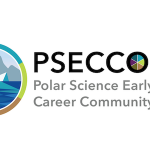
Polar Science Early Career Community Office Launched
The Polar Science Early Career Community Office (PSECCO) was officially launched on April 18, 2022. PSECCO is a community-building and community-support organization for polar early career scientists. Its mission is to empower and elevate early career scientists in the Polar Sciences, support a vibrant community, provide opportunities and resources, offer skill training and work together towards a more just, inclusive, diverse, equitable, and accessible polar science environment.
Learn More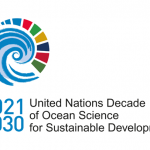
NNA Named an Endorsed Action of the UN Ocean Decade
In 2017, the United Nations (UN) declared 2021-2030 the UN Decade of Ocean Science for Sustainable Development (Ocean Decade), recognizing an opportunity to reverse the decline in ocean health while continuing to rely on the ocean for our ever-increasing needs, particularly under a changing climate. The Ocean Decade was officially launched January 1, 2021.
Learn More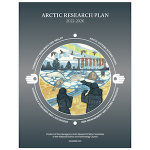
Arctic Research Plan 2022-2026
In December 2021, the White House Office of Science and Technology Policy released IARPC’s Arctic Research Plan 2022–2026. Building on the successes and communities of practice of the 2017–2021 plan, the new Arctic Research Plan is a bold strategy for a changing Arctic.
Learn More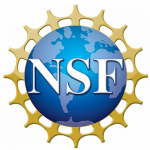
NSF FY22 NNA Proposals Due Feb 16, 2022
Project proposals for the National Science Foundation FY22 NNA solicitation are due February 16, 2022. You may view the full solicitation here. If you would like to learn more about the solicitation, please view this Program Manager Chat, hosted by IARPC Collaborations on December 8, 2021.
Learn More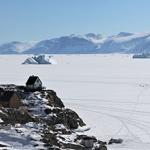
NSF expands Arctic investment through the Navigating the New Arctic initiative
As Arctic temperatures warm faster than nearly everywhere else on Earth, and with some models projecting an ice-free Arctic Ocean in a few decades, the U.S. National Science Foundation...
Learn More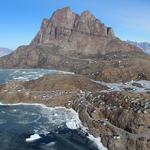
NSF expands Arctic investment
Temperatures in the Arctic are warming faster than nearly anywhere else on Earth. Some climate models project an ice-free Arctic Ocean in a few decades...
Learn More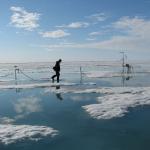
UPDATE: COVID-19 Impacts on Arctic Fieldwork
NSF remains committed to being supportive and as responsive as possible to the needs of the research community in the face of challenges posed by the global COVID-19 pandemic...
Learn More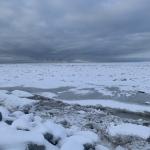
More than 200 researchers sign letter requesting more Indigenous input...
One of the National Science Foundation’s flagship initiatives for the past few years is called Navigating the New Arctic. It looks at the effects of a warming climate on Arctic communities...
Learn More